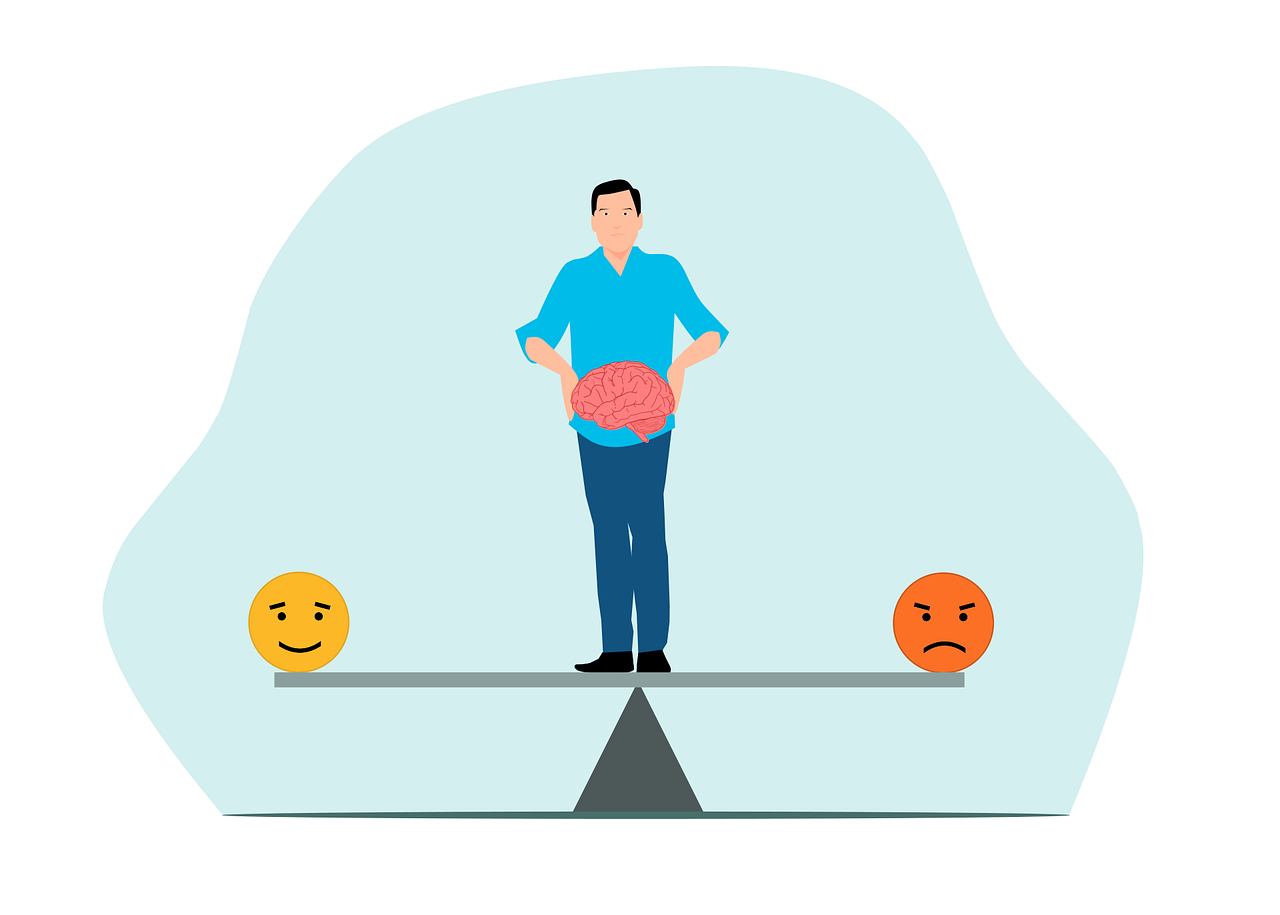Babij and colleagues (2020) conducted a study to help us understand if negative emotions that are perceived as enhancing can result in experiencing less severe negative emotions and engaging in more mastery-oriented behavioral strategies. For example, a student who failed a math exam may experience anger and defeat. If the student perceives these negative emotions as enhancing and motivating, they may feel determined to try harder and study more in the future. However, if the student views the negative emotions as signaling their inability to achieve their goal, he/she may engage in maladaptive strategies such as spending less time studying for the class. Given that there are limited studies that have been conducted to research the link between negative emotion appraisals and self-regulatory processes, Babij et al. conducted two research studies to examine how negative emotion appraisals relate to the intensity of negative emotional experiences and behavioral strategy choice. Study 1 consisted of a survey study that examines the connections between negative emotion appraisals of a personal setback, behavioral strategies, and the severity of the negative emotion, examining if these effects are related to personality, intelligence, and emotion. Study 2 manipulated negative emotion appraisals in order to test the causal relationships between behavioral strategies, the severity of emotion, and negative emotion appraisals.
Study 1. To conduct Study 1, Babij et al. recruited 283 participants ranging from ages 19 to 80 years to complete a questionnaire. The participants rated the way that they appraise negative emotions on a 7-point Likert scale (e.g. “experiencing negative emotion depletes my motivation”). They then wrote about a time that they experienced failure or a setback in five different domains (e.g. not being able to quit smoking, not having enough money to go to the doctor, not getting hired, etc.) and rated the severity of their negative emotions (angry, sad, shame, embarrassment, and guilt) and behavioral strategies (mastery-oriented, e.g. “I exerted more effort to achieve my goal” and helpless-oriented, e.g. “I gave up on my goal altogether”). Babij et al. also assessed the participants’ beliefs on the malleability of intelligence, emotions, and personality. Overall, the results of Study 1 showed that participants who tended to perceive their negative emotions during setbacks as enhancing experienced less severe negative emotions. Moreover, these participants also engaged in more mastery-oriented behavioral strategies.
Study 2. Babij et al. randomly assigned 142 participants to either the negative emotion as enhancing condition or the negative emotion as debilitating condition. The participants evaluated a news article and a video that were used to educate 9th graders about emotion with evidence that negative emotions are either detrimental or beneficial, depending on their assigned condition. After reviewing the article and video, the participants participated in the leadership portion of the study. This included playing the role of a hypothetical recruitment manager who had to consult with their “followers” on how to evaluate potential employees. Once the participants completed this task, the researchers used three different measures. One of these was filler measures, which assessed the participants’ personality, self-control, leadership self-efficacy, self-relevance, and self-esteem. As well as outcome measures, in which the participants rated the severity of their positive (determined, proud, etc.) and negative (ashamed, embarrassed) emotions while the researchers assessed the participants’ future behavioral intentions. Furthermore, the exploratory measure included the same examination of implicit theories of intelligence as Study 1 in order to test if it also affected negative emotion appraisals. The results of Study 2 concluded that the manipulated negative emotion appraisals did not have a significant effect on the intensity of emotional experience as well as strategy use.
Babij et al’s findings have several implications for coping with failures. One instance, a teacher can encourage students to view their anger and frustration about struggling with math problems as a motivational resource for them to work harder and practice more to overcome setbacks. Another example could be someone who did not meet their fitness goal by their deadline. To turn their negative emotions into enhancing, they can reflect on what did not work the first time and make adjustments to their training methods in order to be motivated to reattempt their fitness goal. The results from Babij et al.’s study connect to EPIC’s research because it suggests a potential future study on how people’s different perspectives of failure affect their emotions and behavioral strategies.
If you are interested in finding more about Babij et al.’s study, read more about it using this link: https://www.researchgate.net/publication/334909417_Failing_and_feeling_bad_how_we_think_about_experiencing_negative_emotions_during_setbacks
This post was written by Eliza Hong.
Reference:
Babij, A. D., Burnette, J. L., & Hoyt, C. L. (2020). Failing and feeling bad: How we think about experiencing negative emotions during setbacks. Motivation and Emotion, 44, 436-452.
Crum, A. J., Salovey, P., & Achor, S. (2013). Rethinking stress: The role of mindsets in determining the stress response. Journal of Personality and Social Psychology, 104(4), 716–733.

